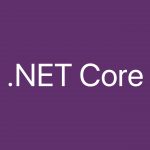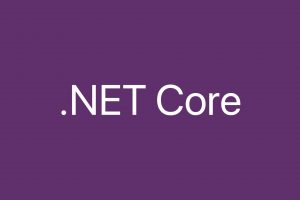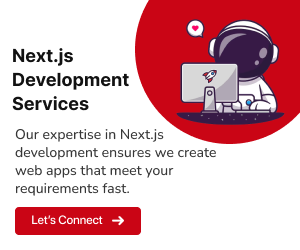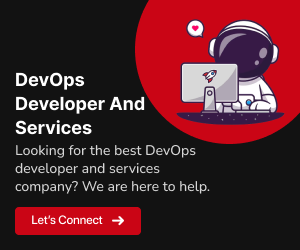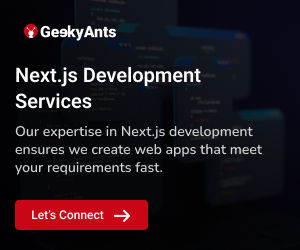In an increasingly digital world, businesses are continually seeking ways to establish a robust online presence and engage with their target audience effectively. As a result, the demand for skilled web developers, particularly those proficient in cutting-edge technologies like Next.js, is on the rise. While the hunt for a talented Next.js app developer is crucial, it’s equally important to navigate the remote hiring process with care, especially in the context of the United States.
Hiring remote Next.js app developers can be a fantastic way to tap into a broader talent pool and reduce overhead costs associated with in-house teams. However, remote hiring comes with its set of challenges and common mistakes that employers should be vigilant about. In this blog, we’ll explore some of these mistakes and provide insights into how to avoid them, ensuring a successful hiring process.
Key Mistakes to Avoid When Hiring Mobile App Developers in the USA

1. Neglecting Clear Job Descriptions
One of the most common pitfalls in hiring a Next.js app developer remotely is not having a well-defined job description. Vague or generic listings can attract a wide range of applicants, many of whom might not possess the specific skills or experience you need.
To avoid this mistake, create a detailed job description that outlines:
- The specific responsibilities of the role.
- The skills and qualifications required.
- Any preferred experience with Next.js and related technologies.
- Clear expectations regarding remote work arrangements.
A well-crafted job description not only attracts more suitable candidates but also helps candidates understand if the role aligns with their skills and career aspirations.
2. Rushing the Hiring Process
In the quest to fill a vacant position quickly, many employers rush through the hiring process. This haste can lead to overlooking essential details, such as a candidate’s compatibility with your company culture, or neglecting to conduct thorough technical assessments. Instead, take the time to vet candidates carefully.
Consider these points:
- Review portfolios and past projects to gauge a developer’s skill level.
- Conduct multiple interview rounds to assess both technical and soft skills.
- Check references and ask for code samples.
- Evaluate how well candidates communicate, as remote work heavily relies on effective communication.
A more methodical approach ensures that you hire a Next.js app developer who not only possesses the necessary technical skills but also fits seamlessly into your remote team.
3. Underestimating Communication Challenges
Remote work, by its nature, relies on clear and efficient communication. Employers often make the mistake of underestimating the importance of this factor when hiring a Next.js developer. Effective communication is vital to ensure that your remote team stays aligned, productive, and motivated.
To address this challenge:
- Prioritize candidates with strong communication skills.
- Consider including communication exercises during the interview process.
- Establish clear communication channels and tools for remote team members.
- Set regular check-ins and meetings to maintain open lines of communication.
By focusing on communication, you can prevent misunderstandings, delays, and disruptions in your remote work environment.
4. Ignoring Cultural Fit
While technical skills are essential, cultural fit within your organization should not be overlooked. The remote work landscape demands self-discipline, independence, and a sense of shared values. A candidate who does not align with your company culture may struggle to thrive in a remote work environment.
To avoid this mistake:
- Assess a candidate’s work habits and work style.
- Discuss your company’s values and remote work expectations during the interview.
- Encourage team members to share insights on cultural fit during the interview process.
Cultural alignment ensures that your remote Next.js app developer integrates seamlessly with your team and shares your organization’s goals and values.
5. Failing to Test Technical Proficiency
Assuming that a candidate’s resume accurately reflects their skills can be a costly mistake. It’s essential to assess a candidate’s technical proficiency through practical tests and coding assessments, especially in technical roles like Next.js app development.
Consider:
- Assigning a small coding task or project that reflects the kind of work the developer will handle.
- Using platforms that offer technical assessments and code challenges.
- Involving your current development team in evaluating technical skills.
Testing technical proficiency not only confirms a candidate’s abilities but also provides a clear picture of how well they can tackle real-world challenges
6. Overlooking Portfolio Evaluation
While technical interviews are essential, overlooking a thorough evaluation of a candidate’s portfolio is a mistake. A strong portfolio showcases a developer’s ability to apply their skills to real-world projects.
Here are some key aspects to consider when reviewing a developer’s portfolio:
- Examine the diversity of projects in the portfolio. A developer who has worked on a range of projects, from small websites to complex applications, demonstrates adaptability and versatility.
- Analyze the code quality in their previous work. Look for clean, well-structured code that adheres to best practices. Well-commented and organized code indicates a developer’s professionalism and commitment to maintainable software.
- Pay attention to how the developer tackled challenges in previous projects. Did they implement creative solutions to complex problems? A developer who can think critically and solve issues efficiently is a valuable asset.
- Evaluate the outcomes of previous projects. Did they meet project goals and deadlines? Were clients satisfied with the results? This information provides insights into a developer’s reliability and ability to deliver.
7. Ignoring Soft Skills
Besides technical proficiency, don’t underestimate the significance of soft skills. Remote work demands effective communication, time management, and self-discipline.
Here are some soft skills to assess in your Next.js developer:
- Effective remote collaboration relies on clear and timely communication. Assess the candidate’s ability to express ideas, ask questions, and provide updates. Strong written and verbal communication skills are vital.
- Remote developers must manage their time effectively to meet project deadlines. Inquire about their time management strategies and their experience in handling multiple tasks simultaneously.
- Remote work environments can be dynamic. A developer who can adapt to changes, whether they involve project requirements or communication tools, is an asset to your team.
Related: How to Become a next.js Developer in the USA
8. Neglecting Security Awareness
Web security is paramount in today’s digital landscape. Your Next.js app developer should be well-versed in security best practices to ensure the safety of your application.
When assessing security awareness:
- Inquire about their knowledge of common web vulnerabilities, such as SQL injection, cross-site scripting (XSS), and cross-site request forgery (CSRF). A security-conscious developer can proactively address these issues.
- Discuss their approach to data protection and privacy. Ensure they understand the importance of securing sensitive user information and complying with relevant data protection regulations.
- Assess their familiarity with authentication methods and multi-factor authentication (MFA). A developer who prioritizes secure authentication helps safeguard user accounts.
9. Not Seeking Client References
Client references provide valuable insights into a developer’s professional conduct and reliability. Request references from the candidate and follow up with their previous clients or employers to gain a deeper understanding of their work ethic and reliability.
When contacting references:
- Inquire about the developer’s communication style and responsiveness. Did they keep the client informed about project progress and updates?
- Learn how well the developer collaborated with the client’s team or other stakeholders. Did they adapt to the client’s work processes and preferences?
- Ask about the developer’s ability to meet project deadlines. Timely delivery is crucial in remote work environments.
10. Ignoring Compatibility with Tools and Stack
Next.js app development often involves a specific set of tools and technologies. Ensure that your remote developer is comfortable and experienced with the tools and stack your project requires. This minimizes the learning curve and accelerates project progress.
Consider the following:
- Ensure that the developer is proficient in the development tools commonly used in Next.js development, such as Visual Studio Code, Git for version control, and package managers like npm or Yarn.
- Assess their familiarity with the technologies and libraries relevant to your project. This includes React.js, Node.js, and any specific frameworks or libraries you plan to use.
- Discuss their preferred development environment and make sure it aligns with your team’s setup. Compatibility in this regard streamlines collaboration.
Conclusion
Hiring a Next.js app developer remotely in the US offers an array of advantages, from access to a diverse talent pool to cost-effective staffing solutions. However, avoiding common hiring mistakes is paramount to ensure that you find the right candidate who not only possesses the necessary technical skills but also fits seamlessly into your remote work environment.
By crafting detailed job descriptions, conducting thorough assessments, prioritizing communication skills, considering cultural fit, and rigorously testing technical proficiency, you can sidestep common pitfalls and embark on a successful journey to hire the ideal Next.js app developer for your team. In doing so, you’ll be better equipped to harness the power of Next.js and stay ahead in the competitive digital landscape.










